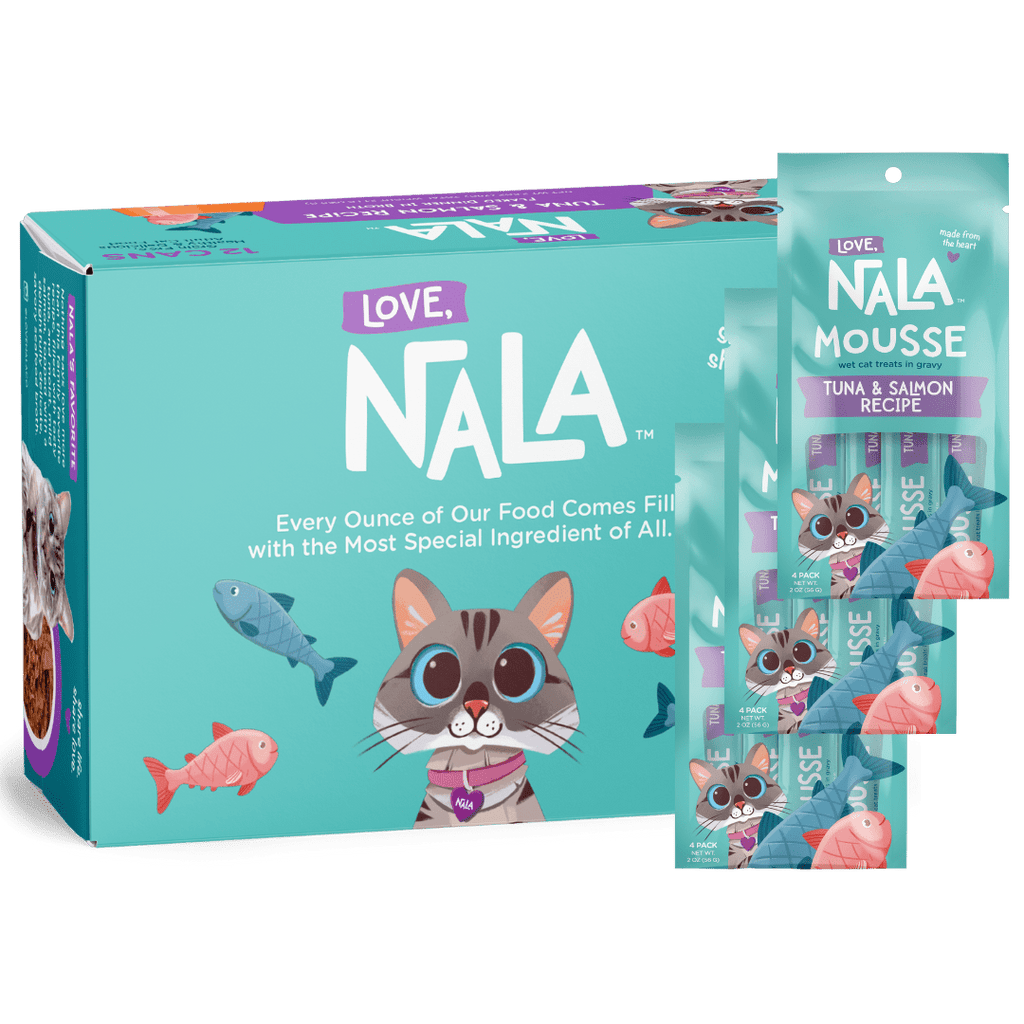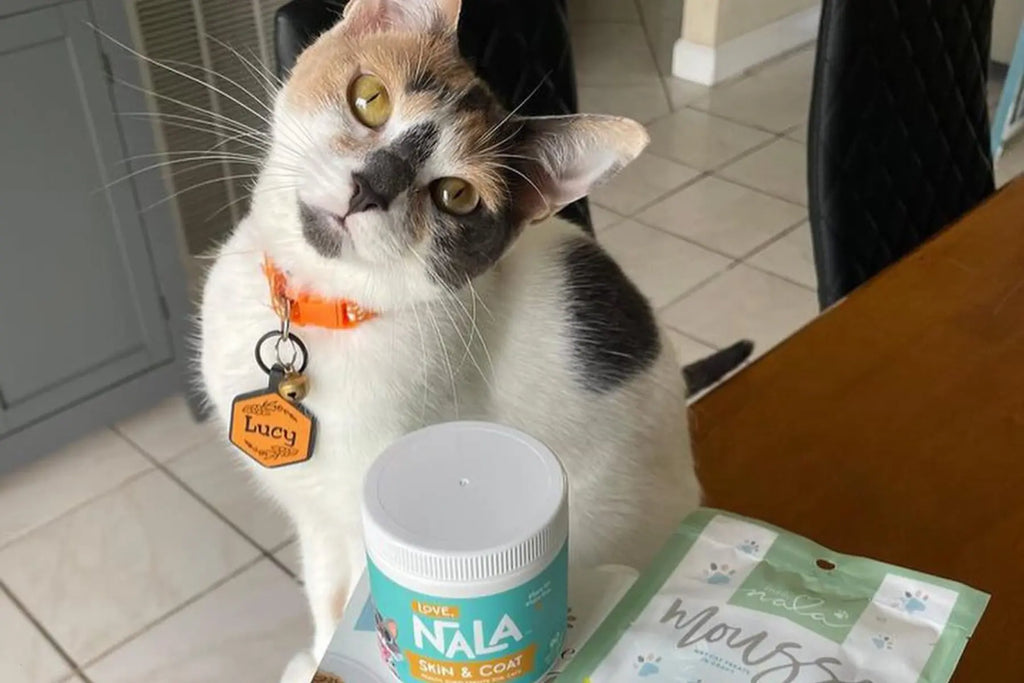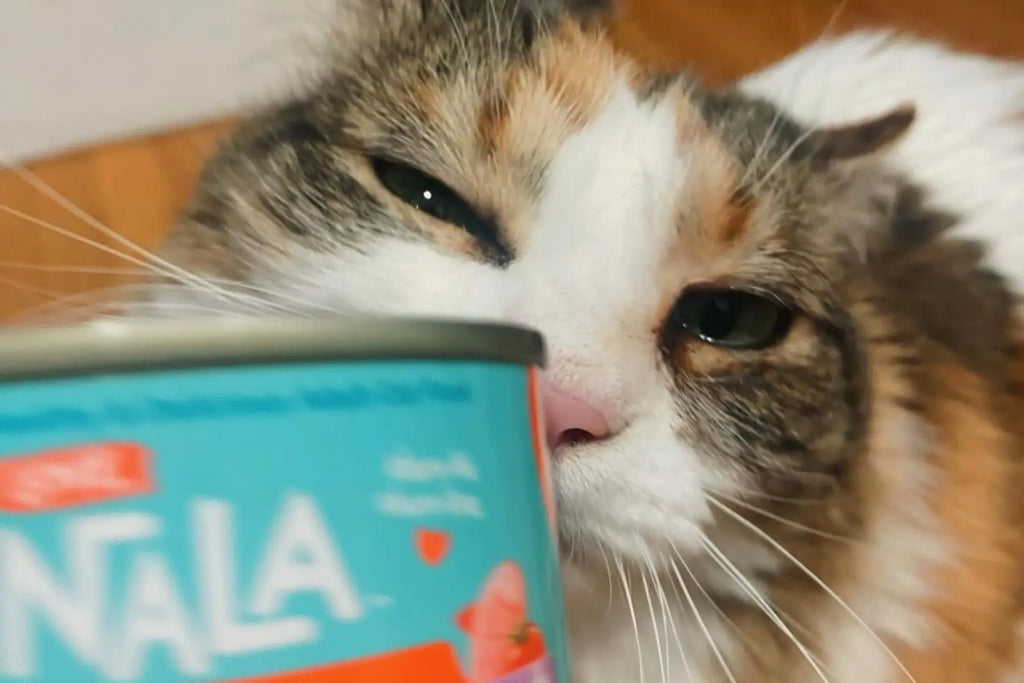Canned cat food offers several advantages for your feline friend, most notably in hydration. Cats often do not drink enough water, and the high moisture content in wet canned cat food helps prevent dehydration and associated health issues like kidney stones. Additionally, the intense flavor and aroma of canned food can be particularly appealing to cats, making it an excellent choice for picky eaters.

Identifying the Best Canned Cat Food
Quality Ingredients
The quality of ingredients in canned cat food is paramount. High-quality ingredients ensure that the food is not only tasty but also rich in the nutrients that cats need to thrive. Look for foods that list real meat, poultry, or fish as the first ingredient, as these are excellent sources of protein. Foods that also include whole grains, vegetables, and fruits can offer additional vitamins and minerals that benefit your cat's health.
Balanced Nutrition for Cats
For optimal health, cats require a diet that is specifically balanced with the right proportions of proteins, fats, and carbohydrates. The best-canned cat food will offer this balance, catering to a cat's carnivorous nature by focusing primarily on protein-rich ingredients. It's important to check that the food meets the nutritional levels established by the AAFCO Cat Food Nutrient Profiles to ensure it's suitable for your cat’s life stage, whether they are a kitten, adult, or senior.
Avoiding Artificial Additives
Many canned cat foods contain artificial additives and preservatives that can be harmful to your cat's health. Look for products that are free from artificial colors, flavors, and preservatives. The healthiest canned cat food is one that maintains its quality and freshness without relying on unnecessary chemicals, focusing instead on natural preservation methods like vacuum sealing and the use of natural antioxidants.
Healthiest Canned Cat Food Choices
Essential Vitamins and Minerals
Cats require a range of vitamins and minerals in their diet to support various bodily functions, from vision to immune health. Cats, being obligate carnivores, derive most of their essential nutrients from animal-based sources. Healthy canned cat food should include a variety of:
- Vitamin A: This vitamin is crucial for maintaining good vision and healthy skin. In cats, it helps in the reproduction process and ensures the proper functioning of critical organs like the heart and lungs. Vitamin A deficiencies can lead to serious health issues, including poor vision, skin problems, and a weaker immune system.
- Vitamin D: Essential for the regulation of calcium and phosphorous levels in the body, Vitamin D supports the development and maintenance of strong bones and teeth in cats. It also plays a role in muscle and nerve control and helps boost the immune system. Lack of Vitamin D can lead to bone deformities and a decline in physical health.
- B Vitamins: This group of vitamins aids in supporting the metabolism and maintaining healthy skin and muscle tone. They also improve immune and nervous system functions. B vitamins are vital for energy production and are involved in making red blood cells, which carry oxygen throughout the body.
- Calcium and Phosphorus: These minerals are vital for maintaining strong bones and teeth. They work synergistically, with calcium playing a key role in contractions in the heart and muscles, while phosphorus assists in the formation of bones and teeth. Both are essential for a cat’s overall physical integrity.
- Iron: Important for the creation of hemoglobin, the molecule in blood that carries oxygen, iron is a vital mineral for maintaining good blood health in cats. An iron deficiency can lead to anemia, which is characterized by a lack of energy and a poor appetite.
Choosing the right cat food enriched with these essential vitamins and minerals is crucial for your pet's overall well-being. Feeding your cat a balanced diet rich in these nutrients will help ensure they live a long, healthy, and active life.
Natural and Wholesome Ingredients
To ensure your cat is receiving the best-canned cat food, choose options that boast natural and wholesome ingredients. Look for foods that incorporate natural sources of fiber, like pumpkin or sweet potato, which can aid in digestion and maintain gut health, all without the use of enhancers or fillers.
Canned Cat Food for Sensitive Stomachs
Common Allergens to Avoid
Cats with sensitive stomachs may react negatively to common allergens found in many types of cat food. To minimize discomfort and digestive issues, it is essential to avoid foods containing common irritants such as corn, soy, and sometimes even grains. Instead, opt for canned cat food for sensitive stomach that features simple, hypoallergenic ingredients that are less likely to cause an adverse reaction.
Limited Ingredient Diets
A limited ingredient diet can be particularly beneficial for cats with sensitive stomachs. These diets typically feature a single protein source and few carbohydrates, reducing the risk of triggering an allergic reaction. Best canned cat food for a sensitive stomach often boasts a short ingredient list, which makes it easier for pet owners to identify and eliminate potential allergens.
Best Canned Cat Food for Senior Cats
Joint Health and Muscle Maintenance
For aging felines, maintaining joint health and muscle tone is critical. Look for canned cat food for senior cats that includes omega-3 fatty acids, glucosamine, and chondroitin. These ingredients help support joint health and can alleviate the symptoms of arthritis. Protein is also essential to prevent muscle wastage, so high-quality meat sources should be a key component of their diet.
Appropriate Calorie Levels
Senior cats often face issues like obesity or, conversely, weight loss due to decreased appetite. Managing their calorie intake is crucial to keep them in optimal health. Here’s how to adjust their diet:
- Lower Fat Content: As cats age, their metabolism slows down, making them less able to process high amounts of fat. Reducing the fat content in their diet helps prevent unnecessary weight gain, which can exacerbate health problems like arthritis and diabetes. However, it's crucial to ensure that the fat reduction does not compromise the overall palatability and nutrient absorption of their food.
- Adjusted Portion Sizes: Smaller, more frequent meals can help manage a senior cat's metabolism and energy levels throughout the day. This feeding strategy helps prevent spikes in hunger while maintaining a steady metabolic rate, which is important for avoiding weight gain and managing chronic conditions like diabetes.
- Regular Veterinary Checkups: Regular checkups are vital as they allow for ongoing monitoring of a senior cat's health and nutritional needs. Veterinarians can provide recommendations on dietary adjustments based on the cat's specific health issues, weight changes, and other aging-related conditions.
By carefully managing these aspects of a senior cat's diet, pet owners can help ensure their feline companions enjoy a high quality of life in their older years. Adjusting their food intake according to these guidelines helps address the unique challenges that aging cats face, supporting their health and vitality well into their senior years.

Best Canned Cat Food for Weight Loss
Low-Calorie Options
When managing your cat’s weight, choosing low-calorie canned cat food is crucial. These products are specifically designed to provide all the necessary nutrients without excess calories that could lead to weight gain. A lower calorie count helps ensure that even less active cats can maintain a healthy weight, which is essential for their overall mobility and longevity.
Recommended Weight Loss Foods
When selecting a weight loss food for your cat, it’s important to choose a product that has been clinically proven to deliver results. Foods that are endorsed by veterinarians or have clinical research backing their effectiveness tend to provide better outcomes. Additionally, best-canned cat food for weight loss should have a palatable flavor to encourage your cat to eat it despite the reduced fat content, ensuring they still enjoy their meals while losing weight.
The Practicality of Bulk Canned Cat Food
Benefits of Buying in Bulk
Purchasing bulk canned cat food can offer significant advantages, particularly for multi-cat households. Buying in larger quantities typically results in cost savings, reducing the overall expense of feeding your pets. Having a good supply on hand means fewer shopping trips, which is convenient for busy pet owners.
Proper Storage Tips
Storing cat food properly is key to maintaining its freshness and nutritional value. Unopened cans of cat food should be stored in a cool, dry place, ideally at a consistent temperature between 50°F and 70°F. Direct sunlight and heat can cause the food inside the cans to degrade prematurely, affecting the taste and nutritional quality. High temperatures can also increase the risk of the can's seal breaking, leading to spoilage. Ensure that the storage area is free from moisture to prevent rust or corrosion of the cans, which can compromise the food’s safety.
Once a can is opened, it's crucial to handle the remaining food correctly to keep it safe for consumption. Unused portions should be removed from the can and stored in a sealed container in the refrigerator to avoid contamination and maintain freshness. This step also helps prevent the food from absorbing odors from other items in the refrigerator and keeps it palatable for your cat. It's generally advised to use refrigerated opened cat food within three to five days to ensure it remains fresh and safe for your pet. If you suspect that the food has been compromised in any way, such as by developing an off odor or appearance, it should be discarded immediately to avoid health risks to your cat.
Managing your stock of cat food effectively is another key aspect of maintaining its quality over time. Regularly check the expiration dates on all cans and arrange them so that the oldest ones are used first. This practice, known as stock rotation, helps prevent accidentally using outdated products that may no longer be safe or nutritious for your cat. It's also a good idea to periodically inspect your stock for any cans that show signs of damage, such as dents, rust, or swelling, which can indicate internal spoilage.
Maintaining Freshness and Nutritional Value
Ensuring that the bulk high-protein canned cat food retains its freshness and nutritional value over time is crucial. Opened cans should be used within three to four days to avoid bacterial growth and nutrient degradation. If you buy in bulk, consider the rate at which your cat consumes the food to ensure you’re not opening more cans than can be used promptly.
Cost-Effectiveness of Bulk Purchases
The cost-effectiveness of buying bulk canned cat food is clear when considering the per-unit savings compared to individual cans. This method of purchasing can be particularly economical over the long term, especially for those with several cats. It reduces the need for frequent shopping and takes advantage of lower prices for larger quantities, making it a smart choice for budget-conscious cat owners.
Grain-Free Canned Cat Food
Benefits of Grain-Free Diets
Grain-free canned cat food is often chosen by cat owners looking to mimic a cat's natural diet, which typically does not include grains. Many believe that grain-free options may be easier for cats to digest and can lead to better overall health, including improved skin and a shinier coat. These diets can also be beneficial for cats with grain allergies or sensitivities, reducing symptoms like itching and gastrointestinal upset.
Recommended Grain-Free Brands
These brands typically use premium ingredients and have formulations that provide complete and balanced nutrition tailored to cats of all life stages. When choosing a grain-free brand, consider those that are transparent about their ingredient sourcing and manufacturing processes to ensure you are feeding your cat a safe and nutritious product.

The Role of Wet Canned Cat Food
Providing Hydration
Hydration is crucial for all cats, especially those that do not drink sufficient water on their own. Wet canned cat food inherently contains high moisture content, which significantly contributes to the daily water intake of cats, promoting better kidney function and overall hydration status. This aspect is particularly beneficial for preventing urinary tract issues, which are common in cats.
Incorporating Wet Food into the Diet
Incorporating the best-canned cat food for indoor cats into your cat’s diet can help balance their nutritional intake and add variety to their meals. It’s often used in combination with dry food to provide a diet that’s not only nutritionally complete but also rich in different textures and flavors, which can stimulate a cat's appetite and interest in food.
Providing your cat with the best-canned cat food is a commitment to their health. It's about more than just satisfying hunger; it's about enriching their life with high-quality meals that promote longevity and vitality. Remember, a well-fed cat is a happy cat, and the choices you make about their food can significantly impact their quality of life.




















